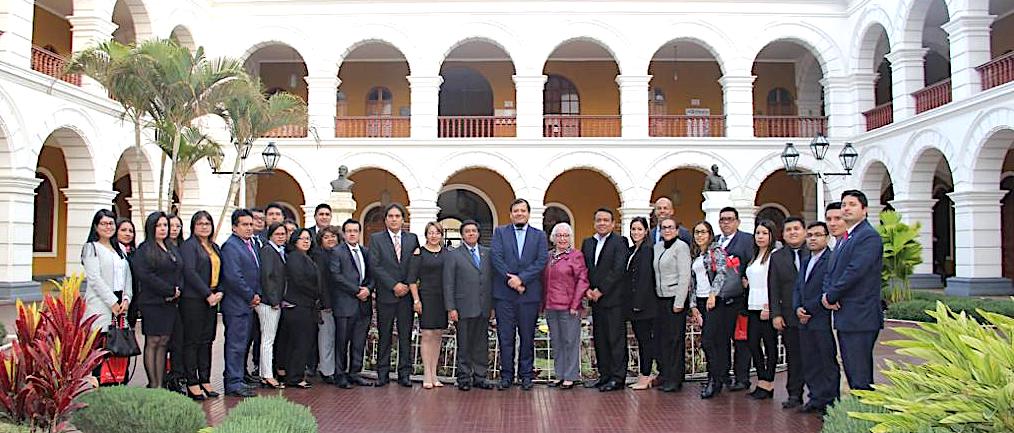Advanced training for specialised judges in Peru – how peer learning helps

Another 30 specialised judges in Peru have benefited from innovative training in Extinción de Dominio, a new form of legislation that allows stolen assets to be confiscated even if the asset holder cannot formally be convicted of a crime.
The two-day course, which took place on 3–4 September in the Superior Court of the city of Trujillo, is part of a wider series of training programmes aimed at building the capacity of specialised judges across Peru to implement the new legislation.
The judges will apply the legislation in the context of a national programme currently being rolled out by the Peruvian Judicial Branch, which foresees 21 courts and 3 specialised chambers with the competence to process cases of Extinción de Dominio.
About the course
An important emphasis in the course was on peer learning: among the trainers were prosecutors and judges who have carried out successful cases of Extinción de Dominio. Experience and common sense show that they are in the best position to advise on the practice, as well as the theory, of applying the new legislation.
The course combined master classes with interactive, hands-on group work based on a realistic case file.
As with previous Extinción de Dominio training programmes for prosecutors and judges across the country, the course was led by Oscar Solórzano and Stefan Mbiyavanga, Asset Recovery Specialists from the Basel Institute’s International Centre for Asset Recovery (ICAR). It was supported by consultants from the Subnational Public Finance Management Strengthening Programme, funded by the Swiss SECO Cooperation and implemented by the Basel Institute’s regional office in Peru.
Learn more
- Landmark asset recovery case puts Peruvian non-conviction-based confiscation legislation to the test – an interview with Dr. Hamilton Castro, Provincial Prosecutor in the Attorney General’s Office of Peru.
- See the original article in Spanish


